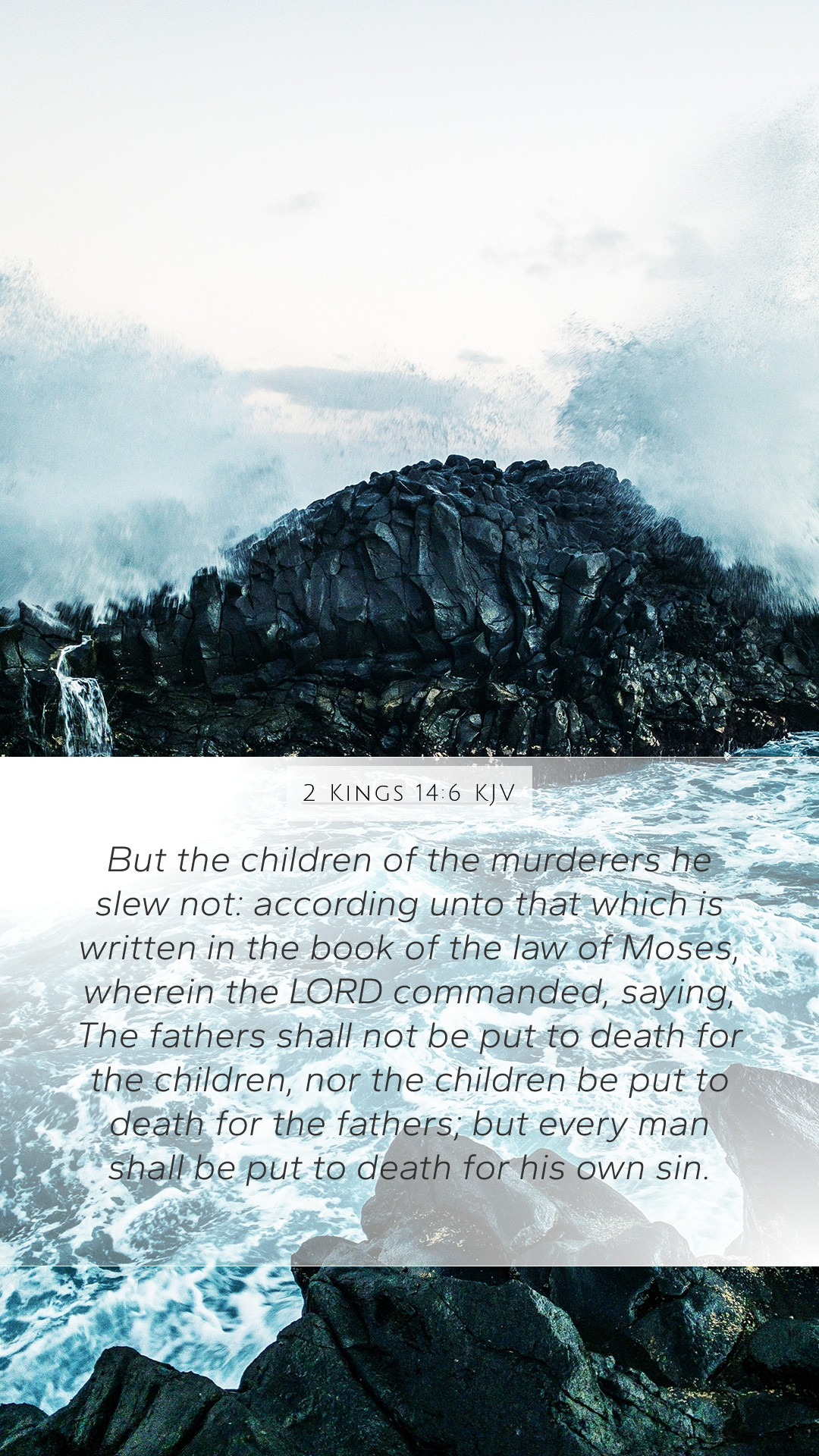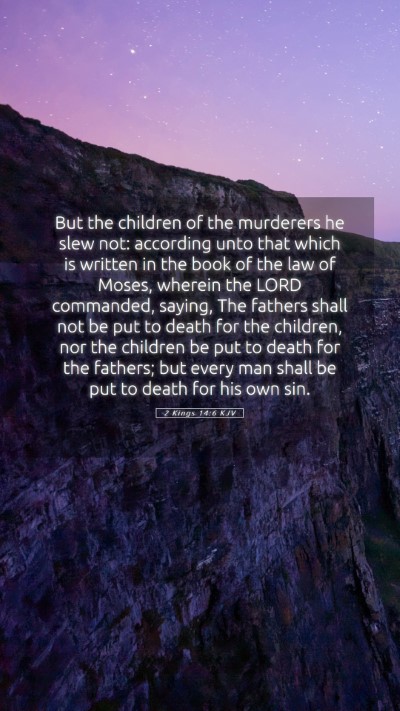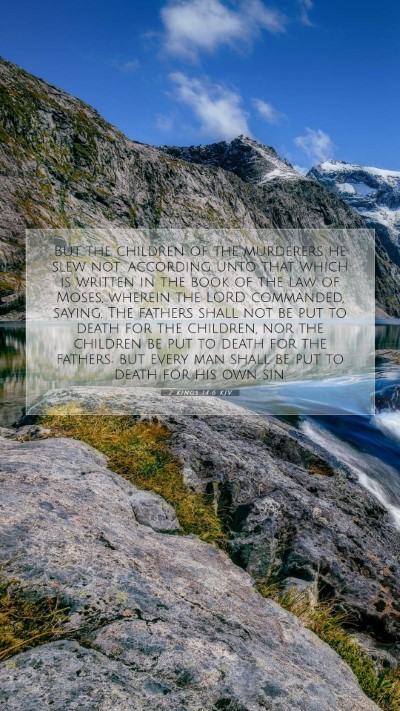Bible Verse Meaning: 2 Kings 14:6
2 Kings 14:6 states, "But the children of the murderers he did not put to death, according to what is written in the book of the law of Moses, where the LORD commanded, 'Fathers shall not be put to death for their children, nor shall children be put to death for their fathers. A person shall be put to death for his own sin.'" This verse indicates King Amaziah's adherence to the Mosaic law regarding justice.
Understanding Scripture: Insights from Public Domain Commentaries
This verse encapsulates important themes in biblical law and justice, emphasizing individual responsibility for sin. Below, we will explore interpretations from renowned public domain commentaries.
Matthew Henry's Commentary
Matthew Henry remarks that King Amaziah was a ruler who operated within the frameworks set by the Mosaic law. He highlights the importance of justice in the realm of governance and reinforces the principle that punishment should not extend to family members for the sins of one individual. This principle reflects God's justice and mercy, demonstrating a system where each person is accountable for their own actions.
Albert Barnes' Notes
Albert Barnes emphasizes the significance of the law cited in this verse, which directly reflects Deuteronomy 24:16, wherein the Lord ordains that children should not suffer for their parents' sins. Barnes suggests that Amaziah's decision to spare the children of the slain is an example of righteous leadership, aligning with the divine desire for justice tempered by mercy.
Adam Clarke's Commentary
Adam Clarke provides an analysis of the cultural context of this ruling. He observes that the act of not executing the children demonstrates a departure from the cycle of vengeance that often characterized ancient Near Eastern societies. Clarke notes that this type of justice is a reflection of the laws set forth in Scripture and signifies a move towards a more moral governance, even amidst the backdrop of sin and violence present in that era.
Bible Verse Commentary: Exploring the Principles of Justice
- Individual Responsibility: Each soul is accountable for its own sin, a foundational belief in many parts of Scripture.
- Divine Mercy: The sparing of children highlights God's mercy and the intention behind the law to prevent generational punishment.
- Righteous Leadership: Amaziah's actions set a precedent for future rulers on how to govern according to divine principles.
- Application in Daily Life: Believers are encouraged to reflect on their own actions and to practice justice and mercy in their interactions with others.
Historical Context of Bible Verses
This verse underscores a significant judicial principle prevalent during Israel’s monarchy. Understanding the historical context enhances our Bible study insights into justice during this period. The ancient Near East was rife with punitive measures where families endured consequences for individual sins, which makes Amaziah's decision noteworthy.
Cross References
This verse can be connected to several other Scriptures that elaborate on the themes of justice and personal accountability:
- Deuteronomy 24:16 - Discusses the law of individual punishment.
- Jeremiah 31:30 - Affirms that individuals will be judged for their own sin.
- Ezekiel 18:20 - Emphasizes personal responsibility for sin and its consequences.
Conclusion
The meaning of Bible verses is often enriched through Bible verse interpretations derived from credible sources. The verse 2 Kings 14:6 serves as a critical reminder of God's principles regarding justice and mercy. By grasping Bible verse explanations in this light, individuals participating in Bible study groups can significantly deepen their understanding of scriptural teachings and their applications in today’s world.


